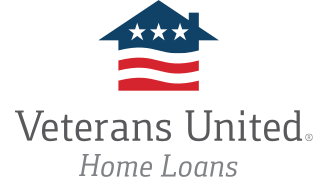VA Loan Benefits
VA home loan benefits offer unique advantages that are unlike other mortgage products on the market.
When it comes to mortgage loans, there’s no better option than the VA loan. Available only to service members, Veterans, and their spouses, these mortgages come with endless benefits (low rates and zero down payment, just to name a few).
Are you a Veteran or active-duty military member thinking of buying a house? Here’s why a VA loan is your best bet to do it.
1. There’s no down payment required.
You don’t need a down payment to qualify for a VA mortgage. Considering other mortgage products require 3% down (at minimum), that’s some significant savings right from the start. On a $200,000 mortgage, it’s at least $6,000 saved upfront.
2. VA loans have historically low interest rates.
This is one of the biggest VA loan benefits out there. When compared to other types of mortgage loans, VA loans have the lowest rates by a mile. In November 2020, for example, the average VA borrower enjoyed a 2.72% rate on a 30-year loan. Conventional and FHA borrowers had rates 0.25% higher.
3. They don’t require private mortgage insurance.
Private mortgage insurance, also called PMI, protects a mortgage lender if the borrower fails to make payments. On conventional loans, PMI usually comes out to about $30 to $70 per month (unless you’re willing to make a 20% down payment). FHA borrowers also need to pay for mortgage insurance — called MIP in this instance. This is due both at closing and monthly.
Fortunately, VA loans have no mortgage insurance requirement, saving VA borrowers significantly — upfront and over time.
4. VA loans are reusable.
Your VA loan benefit doesn’t expire, and there’s no limit to how many times you can use it. If you sell your home and buy a new one down the line, a VA loan will always be an option (as long as you meet the service-related and other requirements of the program).
You can even take two VA loans out at once, in some cases. This is called second-tier entitlement, and military members often use it during permanent changes of station.
5. There are no VA loan limits.
There are no limits to how much a VA borrower can take out. Though there is a maximum that the VA will guarantee (called your entitlement), lenders can technically loan you any amount you qualify for. This can make it easier to buy a larger home or a house in a pricier housing market.
6. They come with government-backing.
VA loans are backed by the U.S. Department of Veterans Affairs, meaning the VA will help lenders recoup some of their losses if a borrower defaults on the loan. This offsets the risk for mortgage companies and allows them to loan cash to borrowers with less-than-perfect credit (or with no down payment).
The government’s backing also allows lenders to offer more favorable terms, like low-interest rates, extended loan terms, and more.
7. Closing costs are limited.
For traditional borrowers, closing costs can be quite expensive — especially once the down payment is factored in. .On VA loans, though, closing costs are capped, and buyers can actually ask sellers to cover all of their loan-related closing costs and a large portion of their other costs, too — things like insurance premiums, prepaid taxes, and more. This, coupled with VA’s 100% financing, can significantly lower borrowers’ upfront costs of buying a house.
8. They’re assumable.
A different homeowner can assume a VA mortgage. If you opt to sell your house, your loan can go with it (as long as the buyer meets certain qualifications). Thanks to all the benefits of VA loans, this assumability can make your home more marketable and potentially even help it fetch a higher price point.
9. There are foreclosure avoidance programs.
The Department of Veterans Affairs works hard to ensure VA homeowners keep their houses. If you have problems making payments on your loan, you can set up special payment plans, modify your loan, talk to a housing or financial counselor, or work with a VA loan technician. They’ll look at your specific case and recommend a personalized solution.
10. There’s no prepayment penalty.
Many mortgage loans come with a prepayment penalty, which will cost you big if you refinance or pay off your loan early. VA loans never have prepayment penalties, allowing you more flexibility to pay off your loan as you see fit.
11. There are several types of loan products.
VA loans are flexible. You can use them to buy a house, build one from the ground up, or refinance an existing mortgage loan — even one that’s not a VA loan to begin with. There are also cash-out refinances available, allowing you to tap your home’s equity to pay for home improvements and other expenses.
12. The funding fee is flexible.
VA loans come with a funding fee — a one-time payment charged by the mortgage lender at closing. It’s similar to the origination fee charged on traditional mortgage loans, though many borrowers can have it waived. This is usually true if you’re receiving compensation for a service-related disability or are a surviving spouse of a Veteran.
13. They’re often easier to qualify for.
There’s no hard-and-fast credit score minimum for VA loans, though most mortgage lenders have their own in-house requirements. Fortunately, these tend to be lower than other mortgage products require, and most VA borrowers can easily get a loan with a 620 credit score or higher.


